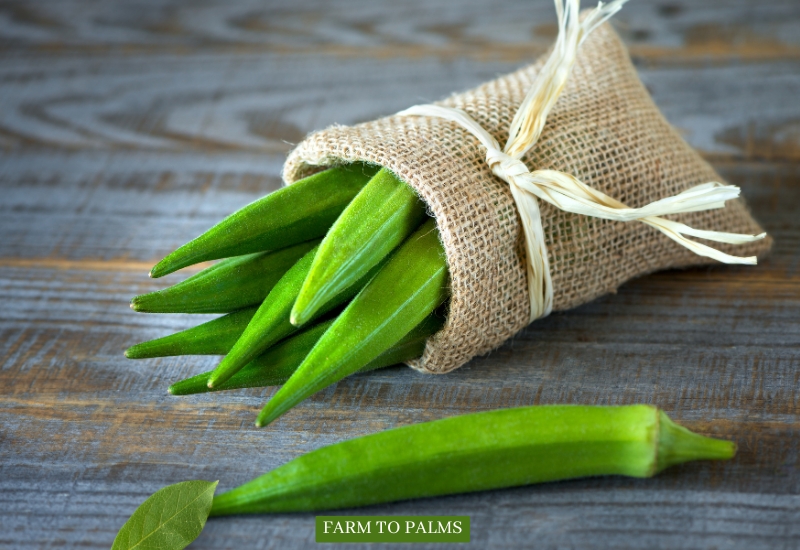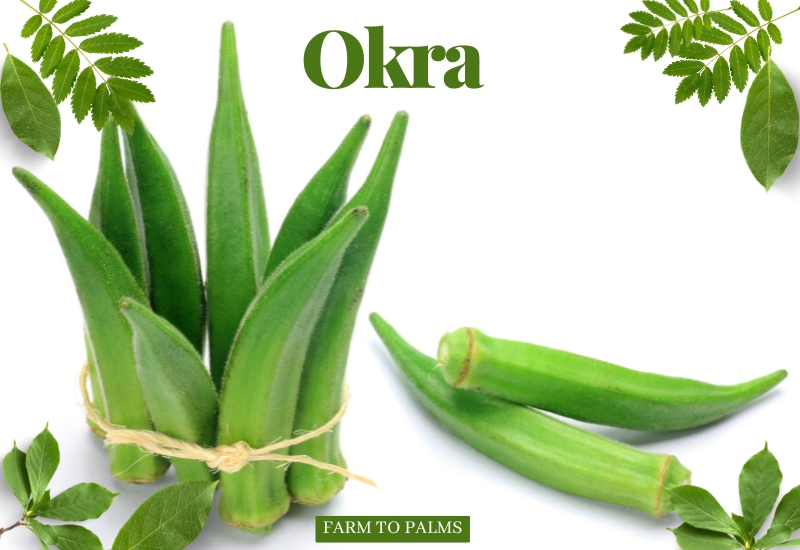Eating okra can help strengthen bones, support diabetes treatment, and fight cancer… However, not everyone can eat okra, and it is a “taboo” for some people with the following conditions.
Okra also has many other names like western melon, yellow flower, bắp chà or coffee weed, okra (in English), and was previously scientifically named Hibicus enculentus L. (Albelmoschus enculentus Wight et Arn) belonging to the Malvaceae family. It is a plant that originates from West Africa and can endure intense heat and drought well; it is cultivated in tropical or temperate regions and is commonly found in the southern United States.
Benefits of eating okra

Cure constipation
Okra is high in fiber, with the fiber content in 100 grams of okra equaling 10% of the daily fiber requirement for the body. Therefore, okra can help the digestive system function better. Additionally, vitamin A in okra also contributes to the health of the intestinal mucosa in the colon, improving its function and making bowel movements easier.
Help whiten and smooth skin.

Vitamin C and K in okra also help to keep your skin fresh and healthy. Other vitamins in okra also support the growth and repair of body tissues and promote the formation of collagen and skin pigmentation, helping to rejuvenate damaged skin.
Weight loss

Okra is high in fiber while being low in calories, making it ideal for those looking to diet and lose weight. However, those with a cold stomach should not eat okra frequently.
Support for diabetes treatment

Some studies have proven that the fibers in okra help stabilize blood sugar levels. It helps prevent diabetes and maintains a balanced blood glucose state in diabetic patients. However, this result is only temporary and does not entirely cure diabetes.
Support reproductive ability and health during pregnancy.

The high folate content in okra is a significant factor you should consider including in your diet before conception, as it “reduces the rate of neural tube defects in the child.” Similarly, consuming lots of folate during pregnancy helps support a healthy mother and baby.
Hair beautification

Chop the okra into small pieces, put them in boiling water, and continue to cook for about 10 minutes. Then, turn off the heat, remove the pot lid, and cool the water. After that, mix this water with a teaspoon of lemon juice, apply it to your hair, and leave it on for about 15 minutes before rinsing with clean water. The mucilage and nutrients inside the okra, combined with the lemon juice, will help make your hair stronger and shinier.
Support strong bones

Thanks to vitamin K and folate, okra is a savior in preventing bone loss and fighting against osteoporosis.
People who should avoid eating okra
The patient has intestinal problems.

Okra contains high levels of fructan – a type of carbohydrate that can cause diarrhea and bloating in patients with pre-existing intestinal issues. It is worth noting that patients with irritable bowel syndrome and other intestinal diseases are often sensitive to foods high in fructan, such as okra.
People with arthritis and joint pain are sensitive to the compound solanine.

Okra contains solanine, which has been associated with joint pain, arthritis, and chronic inflammation in a small percentage of individuals sensitive to this component. Solanine is also present in potatoes, tomatoes, eggplants, strawberries, and artichokes. However, to date, no research has suggested that solanine should be limited. On the contrary, it seems more reasonable to say that vegetables and fruits, in general, may reduce inflammation.
The patient is currently on anticoagulant medication.

Eating many foods high in vitamin K can have the opposite effect on patients taking anticoagulant medications such as warfarin – drugs that prevent blood clot formation that can block blood flow to the heart or brain. Vitamin K is also seen as aiding in the formation of blood clots, making the blockage of blood flow to the heart or brain extremely dangerous.
A person with kidney stones

Anyone with kidney stones also avoids using okra because okra contains a high amount of oxalate, which can quickly form kidney stones in the form of calcium oxalate.
The harms of overeating okra
Eating a lot of okra every day may cause some people to face specific health issues, such as:
Increased risk of kidney stones

Okra contains a high amount of oxalate. According to many recommendations from research institutes, consuming many oxalate-rich foods can increase the risk of developing calcium oxalate kidney stones. Therefore, people with kidney stones should limit their intake of okra, as well as other foods that are high in oxalates.
Cause diarrhea

Okra contains fructans – a type of carbohydrate. Consuming a lot of foods high in fructans can cause conditions such as diarrhea, bloating, and cramps in individuals with gut issues, particularly those with Irritable Bowel Syndrome (IBS).
Eating okra and experiencing diarrhea could also be due to poor food hygiene. While this food is beneficial for people suffering from constipation, it should not be consumed by those with a queasy stomach or abdominal pain.
Arthritis

Although not common, a small percentage of people may suffer from increased joint pain, arthritis, and prolonged arthritic conditions if they consume okra regularly. This is because okra contains solanine, a compound that can cause issues related to bones and joints.
Safe Ways to Consume Okra
You can safely eat okra 2 to 3 times a week, with each serving being about 100 to 150 grams of okra combined with other foods in your meal to provide the necessary nutritional content for a day.
Okra is a nutritious food that supports bone health, diabetes treatment, and cancer prevention. However, consumption should be moderated to avoid specific health issues. Visit Farm to Palms supermarket to select fresh okra and a variety of fruits and vegetables, enriching your daily meals with essential nutrients while maintaining a healthy and balanced lifestyle.

